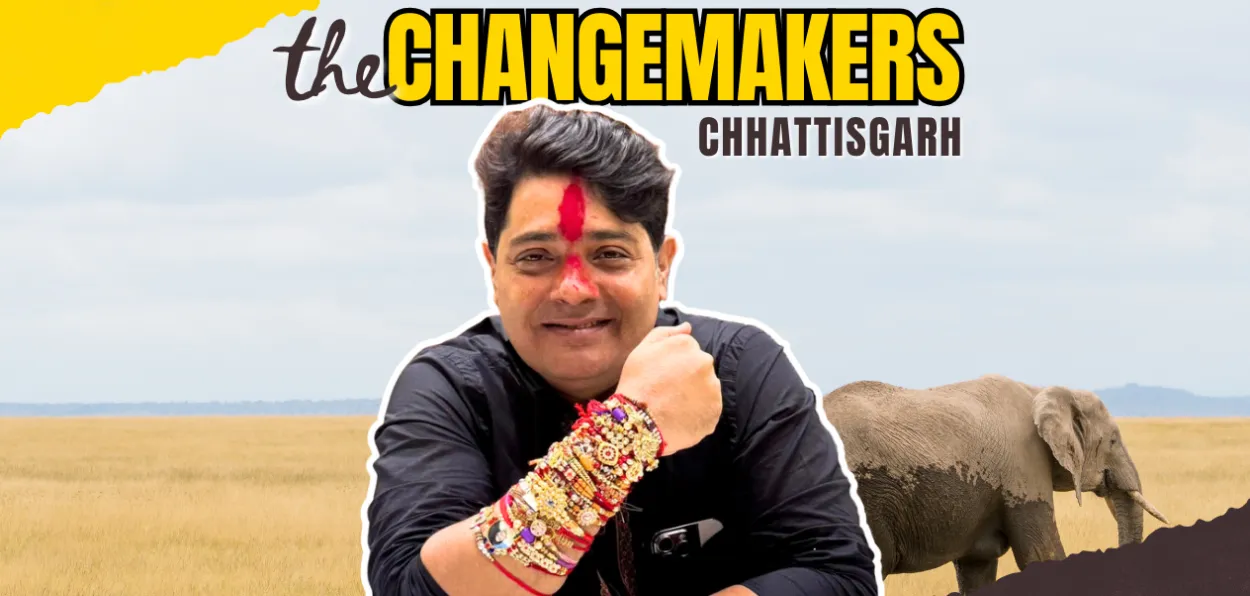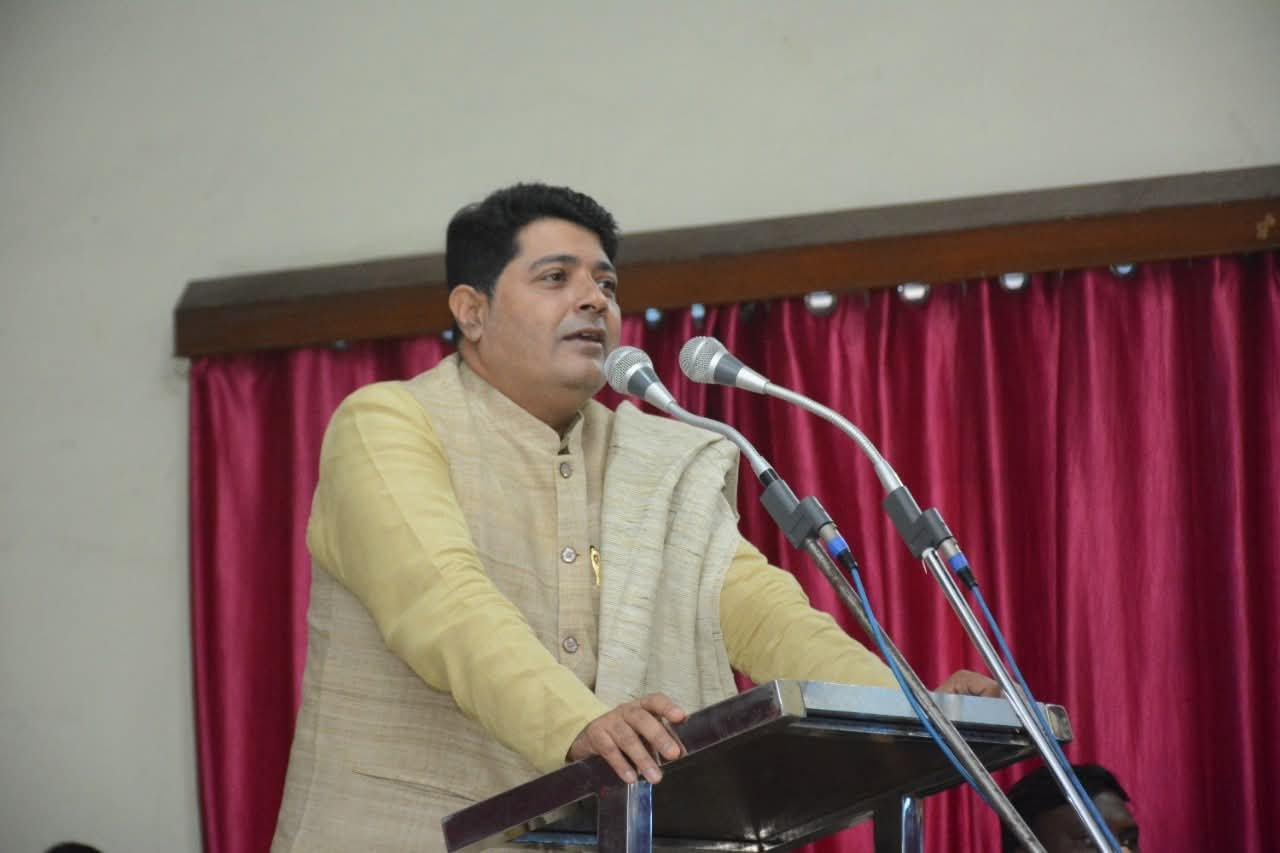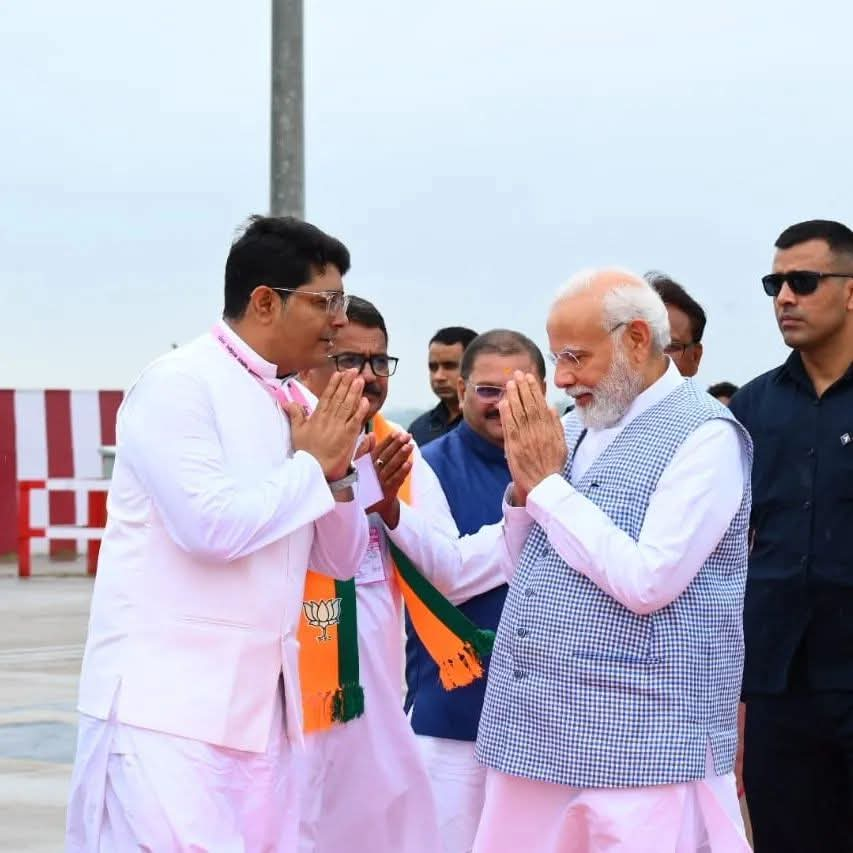
Mandakini Mishra/Raipur
Raipur is among the newest of the capitals of Indians States. In 2023, the city made a significant impact on the national scene, with the Union Ministry of Urban Development ranking it among the top 20 cleanest cities in India. The man behind this transformation was Aijaz Dhebar, the city’s Mayor and a politician.
Raipur was ranked 12th in the Swachh Sarvekshan ranking of cities by the Ministry of Housing and Urban Development in the 2023 survey.
Aijaz Dhebar was born in Raipur’s old locality of Maulana Abdul Rauf Ward, in a modest Muslim family. His father ran a small shop, and Aijaz helped him financially in running the household while continuing his studies. He often says, “My circumstances did not stop me; they pushed me forward.”
In January 2020, Aijaz Dhebar was elected Mayor of the Raipur Municipal Corporation. The Congress party fielded him as its candidate, and he won with 41 votes against his rival, Mrityunjay Dubey, who received 29 votes.
 Aijaz Dhebar delivering a lecture
Aijaz Dhebar delivering a lecture
“I never considered myself a representative of one particular religion,” he says. In recognition of his leadership, he was made National Vice-President of the All-India Mayors’ Council — the first mayor from Chhattisgarh to receive this position.
Aijaz Dhebar’s message to young people is simple but powerful. “Do not waste your energy in hatred and negativity,” he says. “Both politics and society today need creative and innovative youth.
He became Chhattisgarh’s first Muslim mayor and proved that any Indian can fulfil their dreams with hard work and due diligence.
He showed interest in politics at the age of 16. It was when his elder brother asked him to assist in a municipal election campaign. He liked it. Since then, he has been an active political worker.
 Aijaz Dhebar meeting Prime Minister Narendra Modi
Aijaz Dhebar meeting Prime Minister Narendra Modi
Initially, he was given responsibilities at the ward level. But his hard work, plain-speaking and grassroots connections earned him recognition in the Raipur Municipal Corporation.
He was elected councillor twice, and then in January 2020 became Raipur’s mayor — the first Muslim in the state’s history to hold that office. His five-year tenure is remembered for development, urban beautification and cleanliness.
During his tenure, he spearheaded the rejuvenation of Budha Talab, launched pink toilets for women, built multi-level parking and a dog shelter, and helped bring Raipur into the top five cities of the national Swachh Survekshan (Cleanliness Survey).
Aijaz Dhebar’s tenure was not free of setbacks. His detractors accused him of a lack of transparency in development works and corruption. He was described as a “failed mayor.” But Dhebar dismissed every allegation as a political tactic.
In the 2025 municipal elections, he faced a major setback: he lost his councillor seat. His wife, Arjuman Dhebar, however, won election as a councillor.
.jpeg) Aijaz Dhebar with his mother
Aijaz Dhebar with his mother
Even after this electoral loss, Aijaz remained active in politics and social work. He now focuses on training young leaders, organising seminars on urban development and working on education for the minority community.
Aijaz began his political career as a student leader. Earlier on he had become the state president of the National Students’ Union of India.
Asked about whether he will make a political comeback, he smiles and says, “If people want me, I will stand again. After all, I am from the people.”
Aijaz explains that politics for him was never about obtaining a position but about serving society. “Since childhood, I saw how ordinary people suffered over small issues,” he recalls. “At that time, I thought: change will not come just by complaining, it will come by working inside the system. That’s why I chose politics.”
He says he entered politics so that from the lanes to the settlements of Raipur, basic needs like sanitation, water, electricity and roads could be fulfilled. This grassroots understanding shaped his style of leadership.
Aijaz says, “During my tenure as mayor, Raipur gained national recognition in the cleanliness mission, which was the proudest chapter of my political life. I realised that if you work closely with people, their blessings become your greatest strength.”
The former mayor still carries an unfulfilled dream in his heart. He says, “Raipur is my home, the city of my soul,” he says. “I dream that Raipur becomes the cleanest, greenest and most modern city in India.”
.jpeg)
Aijaz Dhebar during field visit
He wants every youth to get employment, every child to receive a good education, and every family to live a safe and healthy life. As mayor, he made cleanliness Raipur’s identity, but his bigger dream is still to make Raipur the capital of innovation and opportunity, where development goes hand-in-hand with equality and brotherhood.
He believes in technology, start-ups, good education and employment avenues; young people have immense opportunities. If this energy is used in building society, the country’s situation will further improve. “I have always seen politics not as a platform of opposition but as a platform of solutions, and that is the message I want to give to youth,” he says.
His own journey from a small shopkeeper’s son to Raipur’s first Muslim mayor shows that dedication and public service can break barriers of poverty, religion and prejudice.
In a state where identity politics often makes headlines, Aijaz Dhebar’s rise stands out. Throughout his tenure, he emphasised that he was not a leader of one community but of all citizens.
Even as political rivals sought to corner him on various issues, he maintained a focus on civic improvement and inclusive development. His projects — from the rejuvenation of public spaces to the introduction of women-friendly facilities — were pitched as benefits for all. For many in Chhattisgarh, he became an example of how minority leaders can lead mainstream politics without being pigeonholed into identity-based roles.
His path was never easy. Growing up in poverty meant juggling studies and work. Entering politics as a teenager meant starting at the very bottom, with no guarantee of recognition. Even after becoming mayor, he faced constant scrutiny, political opposition and the difficult task of balancing development with limited resources.
.jpeg) Aijaz Dhebar at a public rally
Aijaz Dhebar at a public rally
Yet each of these challenges taught him something. Poverty gave him empathy for ordinary citizens. Early political work taught him how to organise people at the grassroots. Opposition sharpened his resolve and communication. And losing an election reminded him that leadership is always at the mercy of public trust.
Today, after his defeat in the 2025 elections, Aijaz Dhebar is at a crossroads. No longer in office, he is using his time to mentor the next generation of leaders, to hold seminars on urban governance and to advocate for educational initiatives among minority communities. This phase, he says, is not a retreat but a continuation of his mission.
Whether he returns to electoral politics or not, his influence on Raipur’s civic life is undeniable. Many of his projects continue to shape the city, and his story inspires young aspirants who believe politics can still be a tool for positive change.
The story of Aijaz Dhebar is also a testament to the evolving face of Indian urban politics, where leaders are judged not only by their community identity but by their ability to deliver inclusive development.
ALSO READ: Dr. Abbas Naqvi's medicine is mixed with compassion and human touch
He continues to work from outside the corridors of power to maintain Raipur as a clean, green, and business hub.
